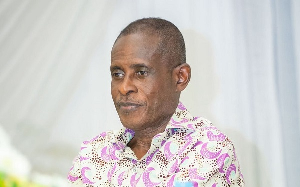A parliamentary committee debating legislation on how Ghana will manage revenues from oil due to start flowing next month has failed to agree on an ammendment, which will delay a reading, its chairman said on Thursday.
The Joint Committee of Energy and Finance has been deliberating on a Petroleum Revenue Management Bill since it was put before parliament in July this year. It was expected to present its recommendation to the House on Thursday.
But chairman James Avedzi told Reuters members were yet to reach a consensus on an amendment proposed by the government to limit how much revenue can be used as collateral for loans.
Under that proposal, the 30 percent of revenues that is lodged in funds cannnot to be used as loan collateral, leaving only the rest which goes in the budget available for this.
"We are unable to submit our report to the house today because we could not reach a consensus at our last meeting," he said.
The advent of oil in Ghana has been hailed as a chance for the aid-reliant country to elevate itself to middle-income rank alongside countries such as Morocco and Thailand, but analysts warn against excessive expectations and the risk of corruption.
Ghana expects to produce 250,000 barrels a day by 2013 which, based on current levels, would make it sub-Saharan Africa's sixth largest producer.
The West African nation is keen not to follow others in letting its resource wealth fuel political corruption, undermine other sectors or trigger civil strife, as in nearby Nigeria
"Getting our report to the House this week will not be possible. It is our hope that we'll be able to reach a consensus after tomorrow's meeting so that we can submit our recommendation next week Wednesday," Avedzi added.
Should differences remain, the committee would submit its report with different options for the house to vote on, he said.
The government had wanted the bill passed ahead of the presentation of the 2011 budget statement and its financial policy statement to be delivered to Parliament next week, Finance Minister Kwabena Duffuor told Reuters last month.
General News of Friday, 12 November 2010
Source: Reuters
Oil bill committee fails to agree
Opinions












